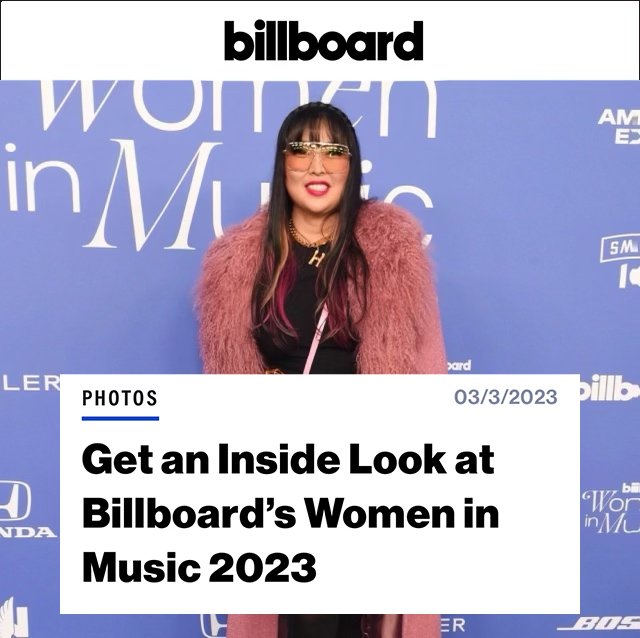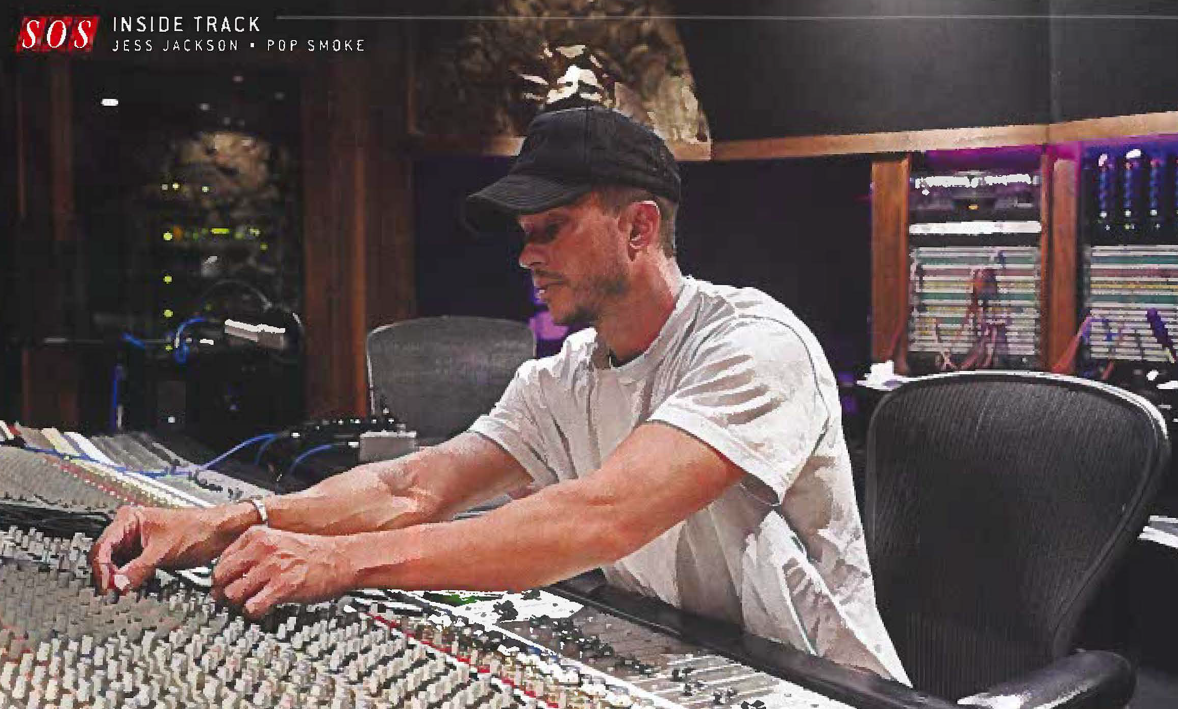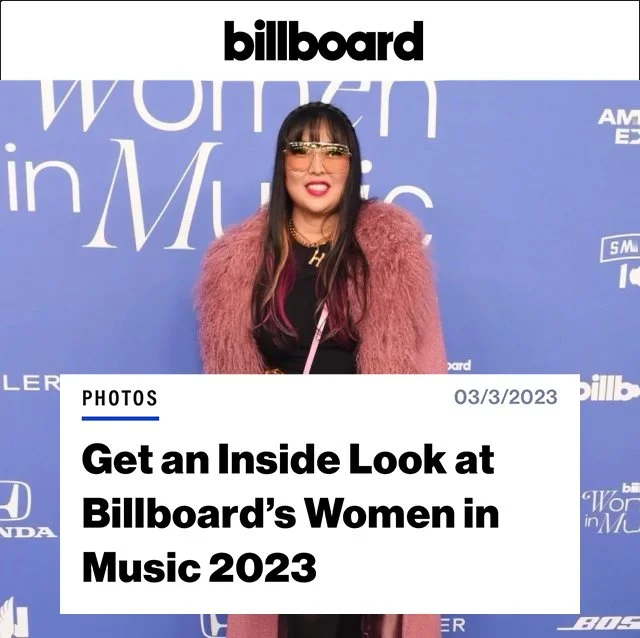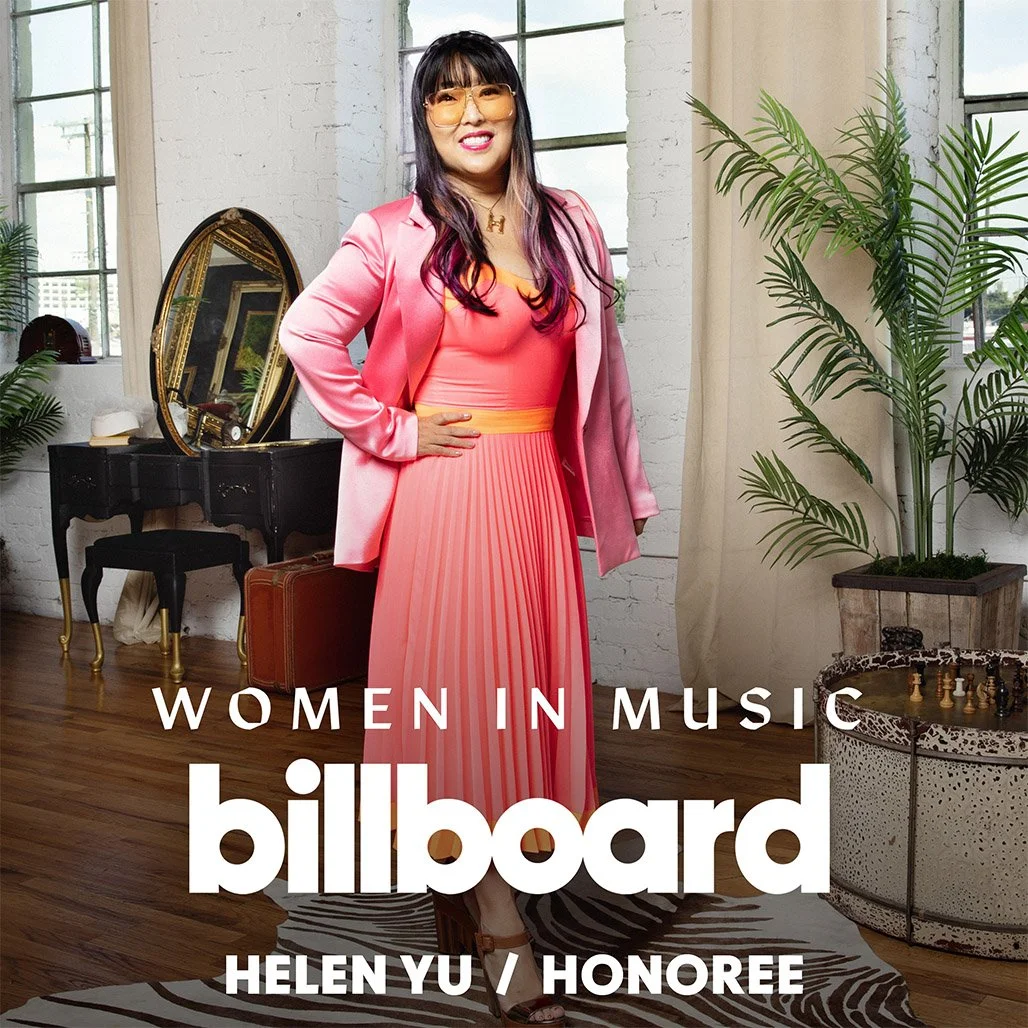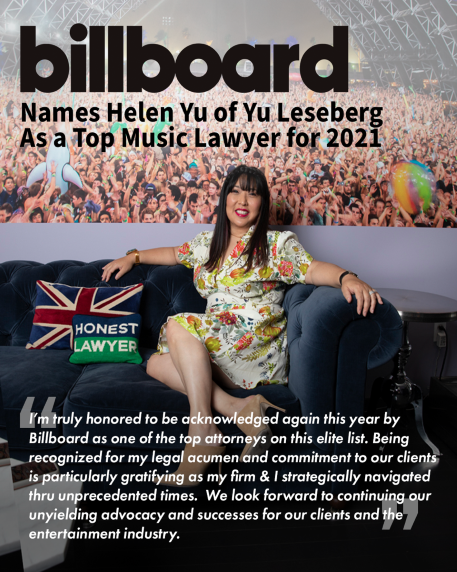What do clients mostly come to you for?
Oh my gosh. Everything. I’m a talent-based lawyer so I’m on the side of artists. We are usually doing things like management agreements, recording agreements, and publishing deals. All kinds of licensing. Brand and sponsor deals, merch deals. Basically, the same type of things.
How much staff work at the firm?
We have 7 people. We have three lawyers. We have two support staff. We have an IT person. We are in an office at the corner of Hollywood and Vine (The Broadway Hollywood Building at 1645 North Vine Street). We are catty-corner (diagonally opposite) from Capitol Records. It is a 1923 art deco Empire building. A historic Hollywood landmark. They refurbished the building, and they built all of these amazing lofts.
After nearly three decades of legal work what surprises you these days?
What surprises me is the number of people–producers—that are curators of tracks, and not creators. Young producers sometimes will get tracks from other producers that created the underlying musical bed. People will bounce files. Germany to the UK, wherever, Mexico, anywhere.
What ends up happening is that the folder of the producer that has the track, even though the artist is cutting in the room with that producer, that producer may have acquired that track, curated that track, or received that track from somebody else. From across the country, across the world, and then, maybe, added some things. Maybe added a drum overlay or added some instrumentation. But the basis of the musical bed is from somebody else. When I go out, and make a deal for the artist, even though my artist was only in with the one producer that had access to the artist, I’ve got two, three, four people on the track sometimes, producers on the track. That happens quite often.
How much time do you spend drafting contracts?
A lot of time. A lot of time, and with all of the digital streaming, the volume of work has increased tremendously. Back in the day when I first started, when I was working at Virgin, the (release) cycles were very different. You had singles that were going to come out, and you had albums. All of those albums had to be completed; all of the label copy and all of the clearances done. You had to be done a minimum of three to four months ahead of time. Then you had to get the product ready. You had to get it manufactured. You had to get it shipped. You had to get it delivered. You had all of these distributors. You had to have stock in the stores. All of that in terms of a very long lead time, and the production, the supply chain, and distribution.
So many pop and hip-hop songs today are co-written by a team of collaborators. And then someone else came in later, and there are six names attached to the song. What is the state now when you have 5 or 6 songwriters or producers involved? With producers putting together a track, then working with songwriters and artists, it often comes down to who did what? What’s the publishing and recording split? Is it still kind of crazy?
It can be. It depends on who the players are. There’s definitely an art to figuring out who is writing, who’s on the song, and who did what. I don’t think there’s a one-shoe-fits-all answer. If you kind of know the personalities, and the backgrounds, with all of your music knowledge, you can usually make people come to see, come to understand.
You started your practice servicing the hip-hop and rap, and Latin communities. Why? Because these genres were being underserviced by the legal community?
Yeah, I think so, Yeah, I think that is really what it is. They were underserviced. They are minorities. They needed somebody that was really going to look at them, and that had the requisite expertise to take their matters seriously.
Your parents came to Los Angeles from South Korea in the 1960s to attend graduate school at the University of Southern California?
Yep. My mom went to law school, and she and my dad ran various businesses. A lot of real estate, real estate investment, accounting, and a trucking company. They were entrepeurials.
Where in South Korea are they from?
Seoul.
Have you been to South Korea?
I have.
Being born and raised in Los Angeles did you feel like a fish out of water there?
No. You know what is amazing about it is that the buildings, the architecture, the public art, the styling, the food, and the fashion are much further along than here in the United States. Because after the war they had such a big growth spurt. They had nothing, and they had to use their ingenuity, and resiliency to rebuild that country. So, when you go there, it’s like looking at these beautiful buildings that you see in Singapore or somewhere like that. Each building has public art or sculpture, Everything is very designed, and styled. That is really important to them.
You started off at Enigma in the publicity department.
I started out with an internship, and I did whatever they wanted me to do: Answer phones, box stuff up, called retail stores. Back then, we’d do a lot of data gathering by calling retailers to find out what records were selling. When I started there, the internet didn’t exist. There wasn’t a lot of competing media.
After college, you worked in private practice at the notable Los Angeles entertainment firm Cohen & Cohen under the mentorship of Martin “Mutt” Cohen. The law practice primarily dealt with music and copyright matters. How did you come to meet the great Martin Cohen?
I took a class after I had graduated from law school on music publishing, and he taught the class. Then I became the TA (teaching assistant). I couldn’t afford to take the class, and he needed a TA. I said, “Okay. So can I take your class?” And if I assisted him, I could take the class.
Why study music publishing, which I and others refer to as “the Dark Arts?” Most law graduates seek out other more attractive areas of entertainment.
I really wanted to know about music publishing. I didn’t know much about it. The only thing that I knew was that it had to do with royalties and income streams. I knew that was important. I didn’t know much else about it. It was very interesting.
TikTok is not only nurturing new talent and new releases, but it has become a factor in returning old songs to the forefront, boosting the value of music catalogs, and new releases as well.
It is an important platform in music. It is an important discovery platform. It is an important promotional platform. Music is a real part of their business. They need to be cognizant of that, and figure out a way to share and compensate, not only the labels, but also various artists. I think that something that is going to be a process over time that they are going to have to get used to because nobody ever thought that TikTok would be as important as it is. But I think to try to put a hammer down on them, it’s not going to be effective.
You have worked with estates in recovering copyright revenues for heirs - Including Rolan Feld, the son of T, Rex frontman Marc Bolan. A lawsuit in California federal court sought a declaration that Rolan was the sole owner of many of his father’s famous T. Rex/Marc Bolan songs like “Bang a Gong (Get It On). The defendant, Westminster Music Ltd., doing business in the U.S. as Essex Music International, objected.
What happened in that case?
I was able to get all of the U.S. copyrights back.
The copyrights were held in a separate umbrella company in the U.S.?
They had Essex and The Richmond Orgazination (TRO), but I got all of the U.S. copyrights back. Basically, it was a 40-year fight for him (Rolan Feld). I was very proud of myself. I worked really hard on that. I probably never had a more complicated brain teaser case than that. Many lawyers that I respected, who I considered experts in the business, and who were even senior to me had tried over decades. Now I’m getting along being one of the senior people
When you opened Yu Leseberg in 2010 what were your clients looking to you for?
They wanted guidance in terms of publishing. How that monetizes. What the best deals were. How that networks because that is really the mystery of what we talked about. You talk about “the dark arts.” Everybody knows that it’s money. Nobody knows exactly how it (music publishing) monetizes or how it should be monetized. That was one of the clear areas of expertise that I had and still continue to have.
CELEBRITYACCESS: This week in the Hot Seat with Larry LeBlanc: Helen Yu, principal attorney, Yu Leseberg A Professional Law Coporation.










